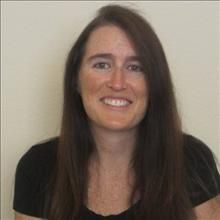
 Speaker "Genetha Gray" Details Back
Speaker "Genetha Gray" Details Back

-
Name
Genetha Gray
-
Company
Intel
-
Designation
Data Scientist
Topic
Using Analytics to Drive Change in the Workforce
Abstract
There are a number of impressive examples of women and underrepresented minorities who have made significant contributions to the STEM (science, technology, engineering, & math) fields. Despite their successes, these groups remain significantly underrepresented in the tech workforce. In fact, in the summer of 2014, many of the large companies in Silicon Valley revealed just how low the representation of women is in tech positions (10-20%) despite market availability. To combat this trend and meet business needs, in January 2015 at the Consumer Electronica Show, Intel’s CEO Brian Krzanich announced a new commitment to promote positive representation of women and minorities as well as the goal of reaching parity by 2020. In this presentation, we describe how this announcement prompted a necessary culture shift in the human resources department itself and a new dependence on analytics to help Intel achieve its goals. We will describe how the problem of fundamentally changing the make-up of the workforce demands new ways of thinking about data fusion, data mining, data analysis, and data visualization techniques as well as new approaches to describing uncertainties in forecasting.
Profile
Dr. Genetha Anne Gray is a data scientist in the Talent Intelligence & Analytics organization at Intel Corporation where she analyzes talent supply chains, career progression, and representation of women and underrespresented minorities. Before joining Intel in 2014, Genetha spent almost 12 years as a member of the technical staff at Sandia National Labs in Livermore, CA. There, she has worked on problems related to the electrical and mechanical engineering of systems, the environment such as the storage of nuclear waste and groundwater remediation, and energy including renewables integration and grid operations. She has a Ph.D. in Computational & Applied Mathematics from Rice University and specializes in analytics techniques for decision making under uncertainty including optimization, data fusion techniques, model validation, and uncertainty quantification. She has co-authored more than 20 research publications, given more than 50 presentations at conferences and at universities, and is active within INFORMS and many of the NSF-funded mathematical research institutes. Genetha is also the co-author of a text book on environmental modeling that is due out this spring.